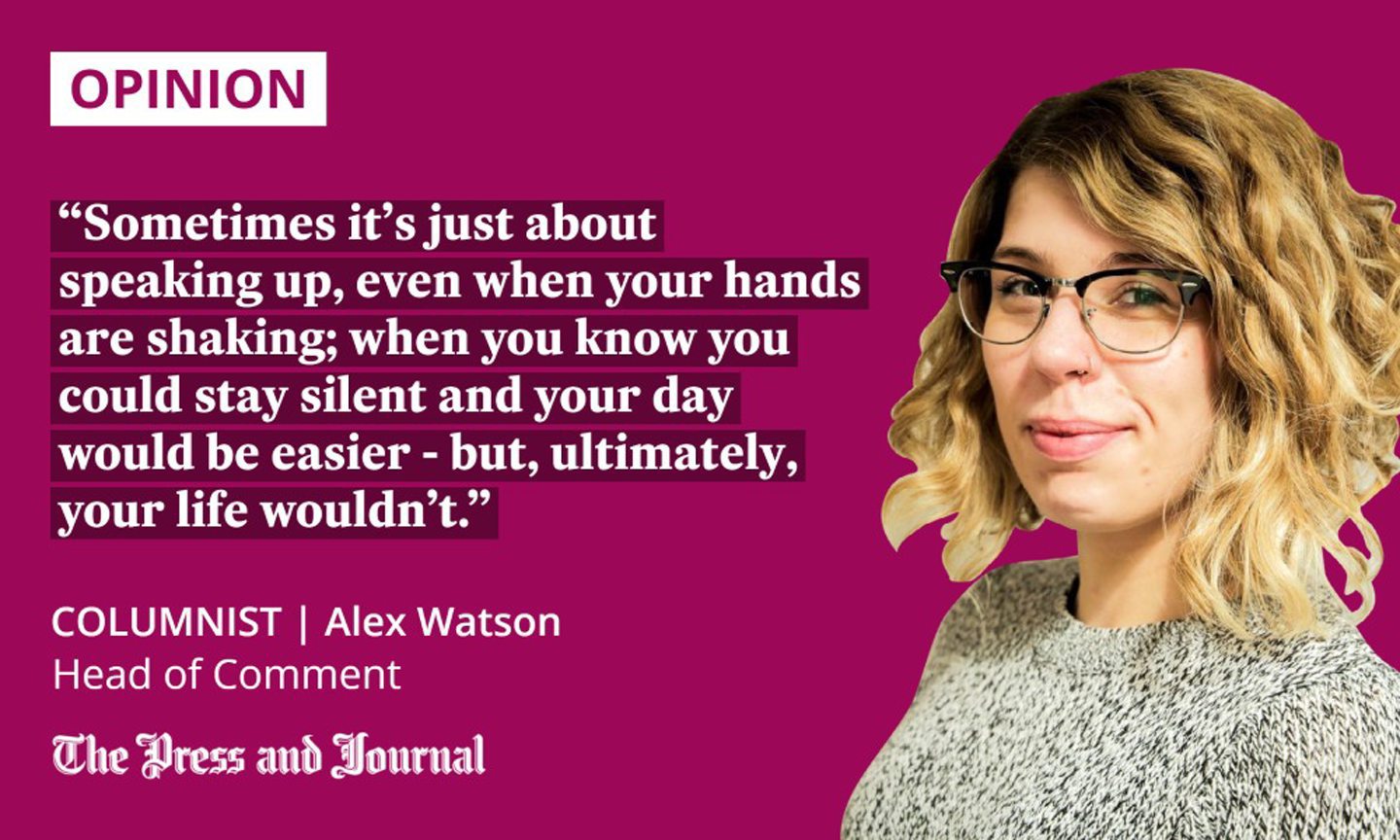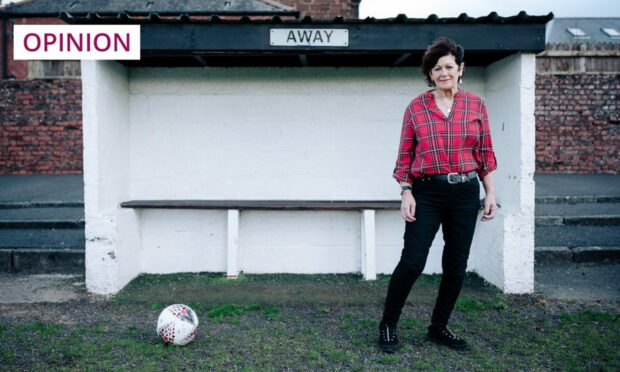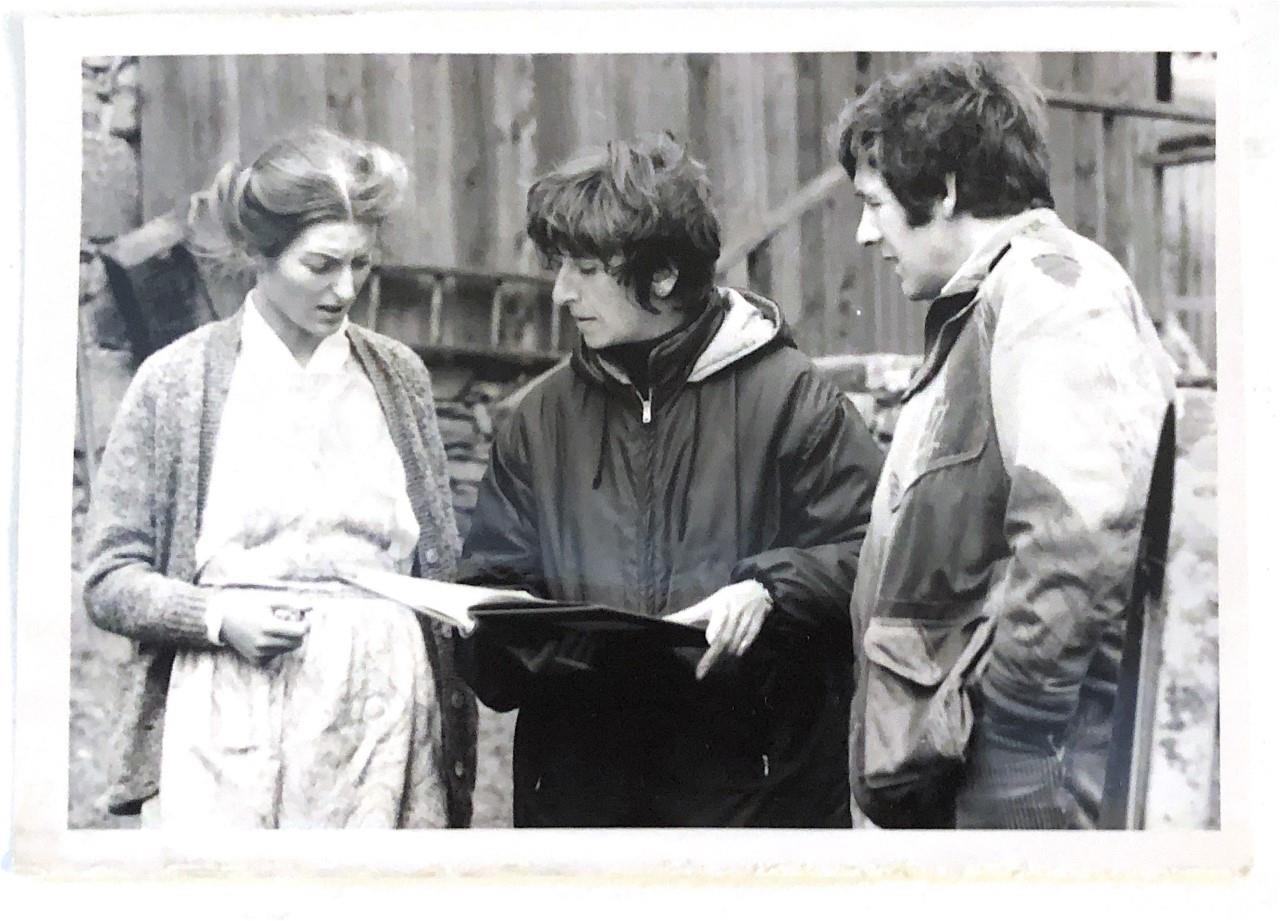You might feel powerless to stop sexism, but small acts of bravery and solidarity have changed Scotland and will continue to do so, writes Head of Comment, Alex Watson.
I’ve got a long fuse, but, in truth, there’s a fierce temper at the bitter end of it.
The only time I can remember erupting at work, years ago now, was during a big meeting where only men were invited to speak.
All of the women present – some of them managers, like me – listened obediently, as was expected. Until, suddenly, I just couldn’t anymore.
Almost like an out-of-body experience, I only remember the unbearable prickle of my scalp, the goosebumps all over my skin, my pounding heart, as I realised I was clearing my throat and asking: “Sorry, have any women got anything to share?”
The loaded question came out rushed, childish, unprofessional. It hung in the air like a disgusting burp. (Uncomfortable truths? Ew.) Everyone stared. No one spoke.

I was drowning in sweat, picturing my P45, when my colleague – my friend – broke the silence and came to my defence; grabbed my hand and pulled me to shore.
Without her, I might have backed down, embarrassed and afraid of being seen as “difficult”. But we stood together, united. The bosses, realising we might have a point, were spooked. Sorries, whether genuine or tactical, were sent. I lived to fight another day.
The Women Who Changed Modern Scotland
Today, a BBC Scotland documentary series comes out, called The Women Who Changed Modern Scotland, celebrating some of those who took a stand against sexism for the benefit of all of us, from the 1960s onwards.
I didn’t know much about the programme when I was offered an early sneak peek of the first episode. I wasn’t expecting to laugh and cheer while watching it. I certainly wasn’t expecting to cry.
Presented by Kirsty Wark, the aim of the show is to amplify lesser-known stories and, in most cases, allow the women involved to speak for themselves. Like footballer Elsie Cook, who battled for years to get the Scottish Football Association to allow women to play the beautiful game at a professional level. And TV director Moira Armstrong – now 93 – who was raised in the north-east of Scotland and fought to be the one to adapt Sunset Song for the small screen in 1971.
The fight continues, of course. But, true trailblazers like these are the reason Scotland now has a women’s national football team to be reckoned with, and many talented women working in its TV and film industries. Wee girls no longer grow up wishing they could be footballers or directors – they know they can, because they see the evidence.
It’s a moving thought, but it’s not what made me well up. The tears threatened to start when, in archive footage of Aberdeen, Edinburgh and Glasgow in the 1960s and 1970s, I saw the women who pushed back against everyday misogyny, domestic violence and economic disparity.
From students to mothers, these were “normal” people, expected to stay quiet, who did something extraordinary, simply by saying enough’s enough. Because of them, beaten women were given safety and support, and children better opportunities.
Be an ally in all senses of the word
So often, feminism and striving for equality isn’t about big acts that turn the world upside down overnight. Sometimes it’s just about speaking up, even when your hands are shaking; when you know you could stay silent and your day would be easier – but, ultimately, your life wouldn’t. And, perhaps more importantly, neither would the lives of those who’ll come after you.
Shout up in meetings, point it out when men interrupt or dominate, be an ally in all senses of the word
The real reason I couldn’t stay silent after seeing red during that meeting? Well, there were lots of them, sitting all around me – the many women and men, younger than me, who I had a duty both to protect and set a good example for. Who, well into the 21st century, shouldn’t have been subjected to the kind of casual, everyday sexism that is still shrugged off far too easily, particularly at work.
It’s tiny in the grand scheme, but the power of being backed up in that moment was monumental for me – a small act of solidarity that meant so much, and that I’ll never forget.
The Woman Who Changed Modern Scotland starts this Tuesday at 10pm on @BBCScotland & @BBCiPlayer 💙 Make sure to tune in! pic.twitter.com/B1byMD0JJv
— Two Rivers Media (@tworiversmedia) February 18, 2023
After the Women Who Changed Modern Scotland screening came to an end, with a huge crowd that included more Scottish female CEOs than I’ve ever imagined let alone seen, Kirsty Wark shared her fear that young women today are being held back by a lack of confidence. It’s certainly not a new problem, if you ask me, nor is it one that women – even influential CEOs – can fix alone or with a click of their fingers.
You might feel powerless, but small acts of bravery really have changed and will continue to change Scotland. They will help to give our girls confidence to do great things.
So, shout up in meetings, point it out when men interrupt or dominate, be an ally in all senses of the word. We can and must keep advocating for ourselves, for our peers and for those who come after us – some who aren’t even born yet.
Alex Watson is Head of Comment for The Press & Journal and has got your back












Conversation